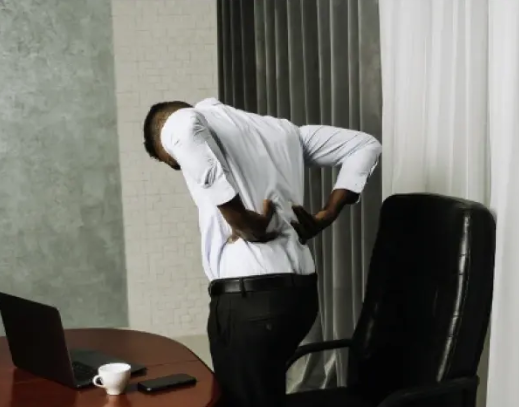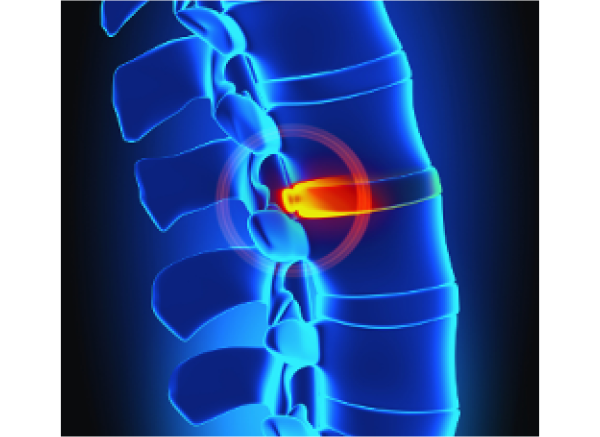Disc degeneration is a common condition that occurs when the discs in the spine start to break down and lose their normal structure and function. It’s a natural part of the aging process, but it can also be caused by other factors such as injury, genetics, and lifestyle factors.
The discs in the spine are made up of a tough, outer layer called the annulus fibrosus and a soft, gel-like inner layer called the nucleus pulposus. These discs act as cushions between the vertebrae and help to absorb shock and allow for smooth movement of the spine.
When a disc degenerates, it can lose its normal shape and structure, becoming thinner and less flexible. This can lead to a variety of problems, including pain, stiffness, and limited mobility.
There are several stages of disc degeneration, ranging from mild to severe.
In the early stages, the discs may still be able to perform their normal functions, but as the condition progresses, they may become less able to absorb shock and support the spine. So, what are some factors that can contribute to disc degeneration?
Aging is a primary factor that contributes to disc degeneration, as our discs naturally break down and lose elasticity over time. Trauma or injury to the spine, such as a car accident or a fall, can also cause the discs to become damaged and lead to disc degeneration. Genetics also play a role, as some people may be more prone to disc degeneration due to their genetic makeup. Finally, lifestyle factors such as poor posture, obesity, and smoking can all contribute to the development of disc degeneration.
Now, let's focus on how poor posture can lead to disc degeneration. When we have poor posture, such as sitting or standing for prolonged periods with our spine hunched over or our head tilted forward, it can put extra pressure on our discs. This can lead to increased wear and tear on the discs over time, contributing to their degeneration. In addition, poor posture can also weaken the muscles in our back and core, which can further exacerbate the condition.
So, what can we do to prevent or manage disc degeneration?
While we can't prevent aging or change our genetics, we can make lifestyle changes that can help alleviate symptoms and slow down the progression of the condition.
Most of us would agree that we struggle with poor posture, especially when we sit during our work day. This is because most office chairs simply can’t support the body in the right places to maintain good posture. But there is a solution that can- Anthros.
The Anthros chair is uniquely designed to support and stabilize the pelvis in a neutral position, which then aligns the spine in its natural curves. This optimizes disc space, decreasing the risk of disc degeneration.
If you are looking to improve posture and increase disc space while sitting, look no further than Anthros.
Anthros is the only chair in the world that is guaranteed to improve posture or your money back. The science-backed, patented design is registered with the FDA as a posture-improving chair and is proven to have the lowest pressure (most comfortable) cushion on the planet (verified by university testing).
Take the next step to reducing pain, increasing comfort, and maximizing performance!
Recent Post

Exercises to Avoid With a Herniated Disc
March 6, 2025A herniated disc can put a serious damper on...

Gentle Back Exercises for Lower Back Pain & Herniated Discs
February 17, 2025Adding a cushion to your office or gaming chair...

Bulging Disc vs. Herniated Disc:
February 5, 2025Adding a cushion to your office or gaming chair...









